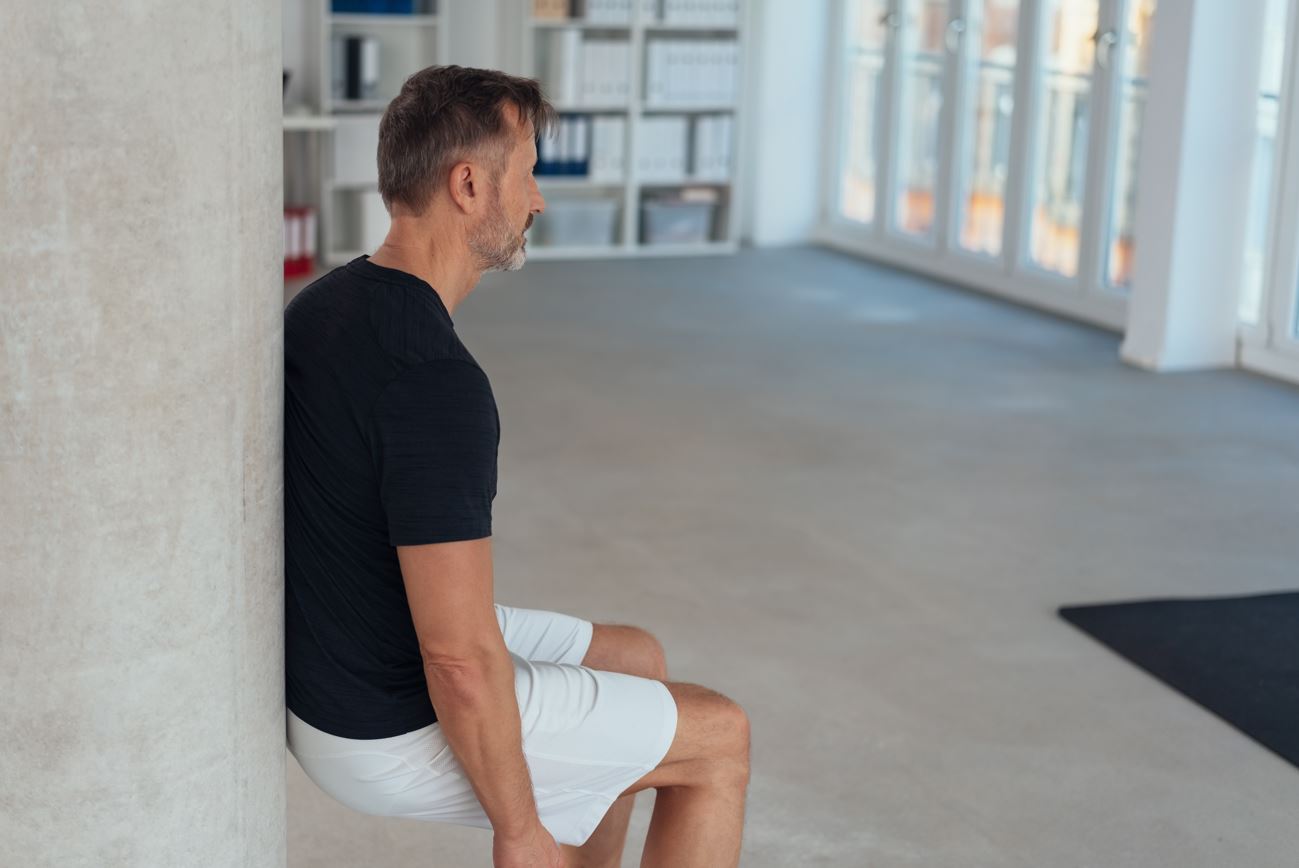As we welcome the new year and new resolutions, Dr Jim Wiles, Principal Lecturer in the School of Psychology and Life Sciences and Director of the Clinical Exercise Science Research Group, discusses isometric exercise, and how this can lower blood pressure to keep healthy.
If you have overindulged (like most of us do over the Christmas period) and feel that you ought to start doing some exercise this New Year, why not make isometric exercise part of your New Year resolution?
Isometric exercise is a unique form of exercise training that requires you to contract muscles without moving an inch!
Our research at Canterbury Christ Church University has consistently shown that 3 sessions of 4 x 2-minute isometric wall squat bouts per week – that’s only 24 minutes of your time a week – can lower your resting blood pressure and have a beneficial effect on your heart and cardiovascular system as a whole.
To perform our wall squat protocol all you need is a stable wall to lean against – no special equipment or clothing is required.
To find out more about this simple method of improving your health and fitness, read more in the latest publication. Follow the ‘RPE exercise’ instructions on pages 5 and 6.
Alternatively, for those who may not have exercised before or for those who may just need a bit of face-to-face guidance, why not get involved in a new research study the team are implementing this January? The study will look at comparing the effects of standard NHS lifestyle guidance with aerobic exercise against standard NHS lifestyle guidance with isometric exercise on blood pressure.
Anyone interested in taking part in this study just needs to be 18 years and over (not difficult for most of us!), physically inactive, have no diagnosed / pre-existing medical conditions, and have a systolic blood pressure between 120-140mmHg – we will explain more about this when we perform a confidential blood pressure check on your first visit. If you would like more information, please contact Elyse Thyer via: et320@canterbury.ac.uk.
I am happy to have a quick informal chat with anyone who wishes to know a bit more about the benefits of isometric exercise and/or the aforementioned research study.
Here’s wishing all staff at Canterbury Christ Church University a healthy New Year.
Dr Jim Wiles is Principal Lecturer in the School of Psychology and Life Sciences and Director of the Clinical Exercise Science Research Group.
 Expert comment
Expert comment Emma Grafton-Williams
Emma Grafton-Williams 2349
2349


